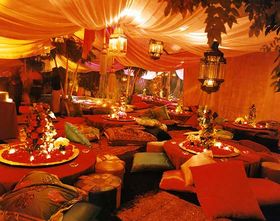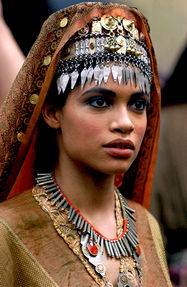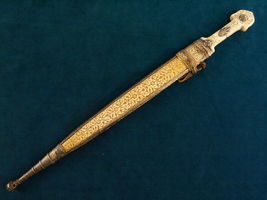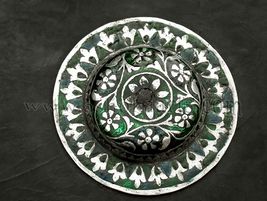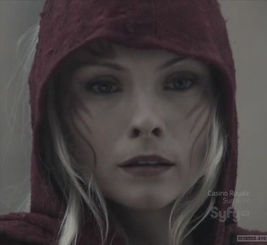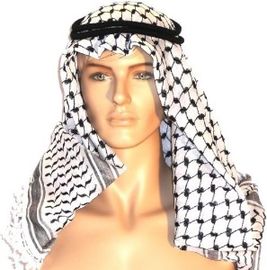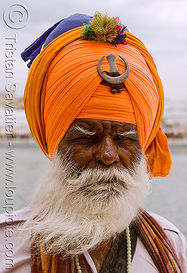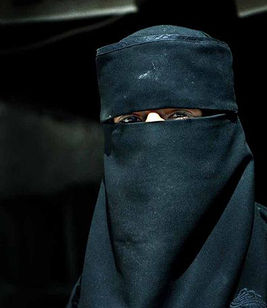The Brass Coast look and feel
Wildwinter (talk | contribs) No edit summary |
Wildwinter (talk | contribs) |
||
| Line 4: | Line 4: | ||
The image of the flame is central to the Freeborn culture, they believe it represents their spirit; wild, powerful and unchained. | The image of the flame is central to the Freeborn culture, they believe it represents their spirit; wild, powerful and unchained. | ||
''Also see [[Brass Coast Icons and Artistry]]'' | |||
==Breakdown== | ==Breakdown== | ||
Revision as of 17:56, 2 August 2012
Overview
The Freeborn look is one of bright colours, silks, jewels and sumptuousness. They admire ornate or bejewelled items. To the Freeborn, a brilliant craftsman is one who can make something elegant as well as sturdy. Their weapons and armour are often engraved or adorned, but they are not fatuous, and do not compromise utility for the sake of appearance. Jewellery is very common with the best pieces, like necklaces, crowns or tiaras, designed to frame the wearers hands or face.
The image of the flame is central to the Freeborn culture, they believe it represents their spirit; wild, powerful and unchained.
Also see Brass Coast Icons and Artistry
Breakdown
Influences
The traditional looks of Moorish Spain, Morocco, Algeria, Tunisia
Materials
Lightweight fabrics such as voiles and chiffons, either silk or synthetic. Also silks, brocades and other rich fabrics. Leather is considered unappealing for clothing, it’s a heavy material they reserve for boots and armour. Gold is prized over silver where available.
Colours
Bright, vibrant colours, especially the colours of flames: strong bright yellows, brilliant oranges and every conceivable shade of red as well as gold and silver. Expensive clothing is made in brightly coloured layers to convey the impression of the fire within.
Avoid Black or White. Black is considered severe and used for shrouds to hide the faces of the dead. White is the colour of the poor, of those too impoverished to afford exotic dyes.
Clothing
Veils, scarves, head-wraps, pantaloons, loose shirts and kaftans, sashes rather than belts. Clothing is usually worn loose with layers of draped material.
Veils are worn by men and women to make them appear more mysterious and alluring. The ideal style is the tagelmust (preferably in bright red, orange or yellow rather than blue).
Clothing and headdresses will often be decorated with shiny metal jewellery, bells, coins and other jingly bits. Jewelry should frame the hands and face.
Ideally scabbards or pouches should hang at the waist by a silk cord that goes over the shoulder. Any tattoos should be highly intricate, henna-style.
Armour
Scale is the ideal armour, ideally in a bright golden colour. Chain in the “jannissary” style, particularly the chain helmets, is also great. Small pieces of plate or breastplates are also good especially if ornate and inlaid. Leather armour is common, either magnificently tooled or used to hold pieces of metal armour in place.
Armour, whether metal or leather, should have embellished edges and rich decoration, with calligraphy and ornate designs.
Shields
Round (ideally domed) metal shields, highly decorated if possible.
Weapons
Scimitars are less common than straight swords and axes. The Bhuj, a large heavy single-bladed spear, is the ideal pole-arm. The best quality weapons are intricately etched and engraved.
Feel
Free, flowing, headstrong, sumptuous, practical, exuberant, hedonistic, colourful, rich, joyful
Things to Avoid
- Shemagh, keffiyeh (patterned ‘tea towel’ worn on head) and agal.
- Fez and bandanna.
- All “high” turbans such as the classic Islamic or Sikh turban.
- Everything defined as “sartorial hijab” by wikipedia - burqa, niqab, etc.
Images
Freeborn costume
The Freeborn believe that fire is an essential part of the human soul. Their clothing reflects their souls, a mix of bright yellow, orange and reds, hung in layers.
Jewellery and Veils
Jewellery should frame the face or hands to draw attention to them. Veils are fashionable for men and women who wish to appear mysterious and alluring.
Armour
Golden scale is the ideal armour, worn like mail or else secured with leather.
Mail worn in the “jannissary” style and armour reinforced with ornate metal or leather plates are both good.
Weapons and Shields
Scimitars are not common, most Freeborn prefer an axe or straight sword. Weapons should ideally be inlaid and decorated with complex designs. The Indian “bhuj” is the favoured pole-arm.
The perfect Freeborn shield is a domed, round shield that is intricately decorated in gold.
Corsairs
Corsairs epitomize Freeborn daring and adventure. Javelins and bows are common but the Catazarri crossbow is also used. Many are lightly armoured, but the most bold show off their success with ornately gilded plate.
ChIldren
Children are an opportunity for parents to show off their wealth, dressing their offspring in traditional Freeborn styles.
Sutannir
Sutannir often paint their faces and skin with designs inspired by flames and themes of fire.
Things to avoId - DO NOT USE THESE
In defining the Freeborn look we have actively chosen to exclude some elements. Please do not use any of the images or looks given here:
Shemagh and agal - DO NOT USE THESE
The shemagh and agal is a traditional arab headdress. It is explicitly excluded from the Freeborn look, please do not use it.
Turbans - DO NOT USE THESE
Turbans, head dressing where the material is piled up and bound on the head are not part of the Freeborn look. The turbans below aren't suitable for the Freeborn.
Also avoid the fez and bandannas. Look on Google Images for the “tagelmust” (ideally in yellow, orange or red) to get the right look for a head covering.
Sartorial Hijab - DO NOT USE THESE
Freeborn costume is designed to show off the wearer, male or female, and make them look wealthy and exciting. It is not particularly revealing but it is not intended to cover the body so that it cannot be seen. Therefore almost all sartorial hijab is wrong. Avoid abaya, burqa, chador, niqab, and similar looks.
